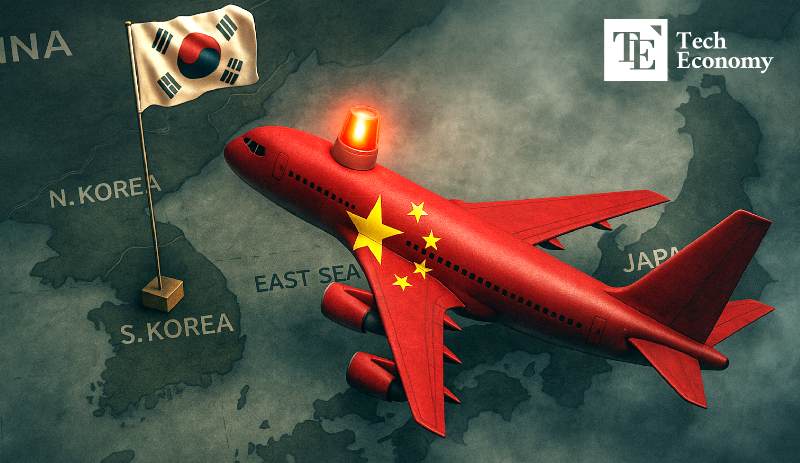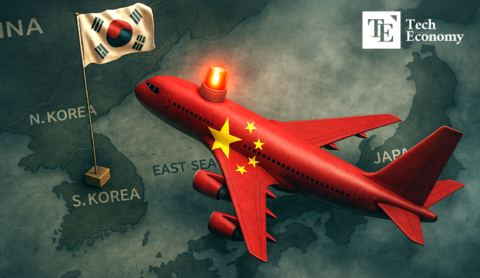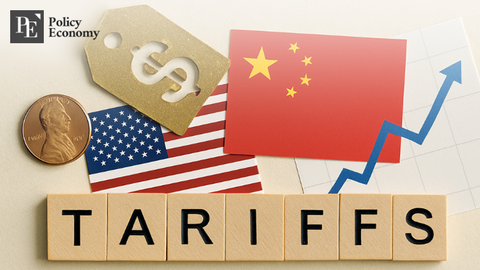Chinese Firms Turn to Overseas Markets Amid Domestic Slump, Targeting Korea From Milk Tea to EVs
Input
Changed
Ali and Other Cross-Border Platforms Rapidly Absorbing Market Share Leveraging Success in Korea as a Springboard for Global Expansion BYD Leading the Way as Changan and Others Explore Market Entry

Chinese companies are accelerating their foray into the Korean market. Cross-border e-commerce platforms such as AliExpress and Temu are rapidly winning over local consumers with ultra-low prices, while extending their reach to foodservice franchises and the automotive sector. With growth in China’s domestic market slowing and competition intensifying, these firms are positioning Korea—renowned for its discerning consumer base—as a strategic bridgehead for global expansion.
Tea Brands Line Up for Market Entry
According to industry sources on the 10th, a wave of Chinese tea brands has actively advanced into Korea since last year. Chagee Holdings, operator of premium milk tea brand Chagee (霸王茶姬), is in talks with local coffee and distribution firms to establish a joint venture, with the first store expected to open this year. Founded in 2017, Chagee gained popularity with innovative beverages blending traditional Chinese teas such as green and oolong with fruit, milk, and cheese, benchmarking Starbucks Reserve. In April, the brand opened an Instagram account to signal its Korean debut.
Mixue, China’s top milk tea chain, was the first mover, opening its initial store near Chung-Ang University in 2022. It now operates 12 directly managed outlets and is rolling out franchising this year. ChaBaiDao launched its first store in Apgujeong in January 2023 and currently runs 18 outlets, aggressively recruiting Korean franchisees to localize operations. Heytea, a premium brand that followed shortly thereafter, has also been expanding across Seoul’s prime districts.
Chinese dining franchises are strengthening their footprint. Hotpot giant Haidilao, which entered Korea in 2014, posted domestic revenue of $78 million last year, with sales expected to surpass $100 million this year. Tang Hua Kung Fu, specializing in mala dishes, reported $22.2 million in revenue last year, up 22% year-on-year, with operating profit of $10.5 million and an exceptional margin of 47%. It now runs 494 outlets nationwide. Meanwhile, Ban Tian Yao Kao Yu, a grilled fish franchise that entered in 2020, operates six locations in key districts such as Gangnam and Hongdae.
Half of Smartphone Users Install Chinese Shopping Apps
Online, Chinese e-commerce platforms are mounting an aggressive push. JD.com, one of China’s “big three” alongside AliExpress and Temu, formally declared its entry into Korea in April. Known as a rival to Alibaba’s Tmall and dubbed the “Chinese Coupang,” JD.com has built dense logistics networks across China to enable next-day delivery. In Korea, it has established warehouses in Incheon and Icheon to support rapid fulfillment.
Despite recurring quality controversies, AliExpress and Temu are expanding their user base through rock-bottom prices. According to Wiseapp Retail, 47.1% of Korean smartphone users had a Chinese shopping app installed in the first half of this year, with 59.6% of them actively using it. Monthly active users (MAU) reached 9.05 million for AliExpress, 8 million for Temu, and 2.2 million for Shein. AliExpress in particular nearly doubled its MAU from a year earlier, ranking second only to Coupang among general merchandise apps.
In March, lifestyle-focused social media platform Xiaohongshu launched in Korea, its second Asian market after Japan. Known as a “decision platform” in China for its influential user reviews on travel, shopping, food, and beauty, Xiaohongshu’s revenue grew 20% last year. Coupled with the rise of influencer marketing, it is expected to emerge as a key channel alongside TikTok.

Domestic downturn and abolition of U.S. duty-free benefits for direct purchases as burdens
Chinese automakers are also making inroads. Six brands—including BYD, Zeekr, Changan, XPeng, Leapmotor, and Xiaomi—have either entered or announced plans to enter Korea. BYD, the global EV leader, launched its first model in Korea in April with the compact SUV Atto 3, priced in the low $20,000 range. The model quickly garnered strong interest, securing 1,000 contracts within a week.
Changan, one of China’s top five automakers, has begun recruiting senior executives in preparation for a local subsidiary, with plans to introduce its EV brands Deepal and Avatr. Zeekr, Geely’s premium EV arm, is targeting market entry by year-end. XPeng is pursuing a distributor model to minimize upfront costs, with its mid-sized sedan P7 as the spearhead.
The push into Korea reflects stagnation at home. With China’s domestic market reaching saturation, 3 million restaurants closed last year alone. While cross-border e-commerce transactions through platforms like AliExpress, Temu, and JD.com continue to rise, challenges such as the removal of U.S. duty-free exemptions for direct imports and tightening third-country rerouting restrictions are forcing firms to seek overseas lifelines. China’s once-booming EV market is also plagued by cutthroat competition, eroding profitability.
For Chinese firms, Korea offers an attractive proving ground. The country’s trend-sensitive consumers and high standards provide a litmus test for global expansion. Success in Korea can ease entry into larger markets such as the U.S., Japan, and Southeast Asia. For instance, ChaBaiDao leveraged its Korean foothold to expand into 10 countries including Spain, New Zealand, and Thailand. Korea also offers lighter regulatory burdens than the U.S. or EU and fewer tariff risks than Southeast Asia, where Chinese products face high duties and rerouting restrictions.






















Comment